Once I settled on dividing this chunk of my reading out for its own list, I knew instantly half of the books that’d make it before I even looked at my reading log. After my first cut (which was pretty hard), I had 20+ candidates for the other 5 spots. Whittling those down was difficult, but I’m pretty comfortable with this list. That doesn’t mean the other 90 or so books I read in this family of genres were bad—most were really good and worth the time (sure, a handful should be missed, but let’s forget about them). But these are the crème de la crème.
Not all of these were published in 2019—but my first exposure to them was. As always, I don’t count re-reads, or almost no one could stand up to Stout, early Parker, etc. and my year-end lists would get old fast.
I should say that I was a little worn out by the time I composed a lot of this and ended up borrowing heavily from my original posts. Hope you don’t mind reruns.
(in alphabetical order by author)
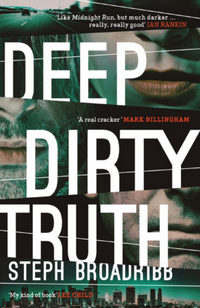 Deep Dirty Truth
Deep Dirty Truth
My original post
Lori is kidnapped by the same Mob that wants her dead, giving her basically two choices—do a job for them or else they’re coming for JT and Dakota. Nothing about this book went the way I expected (beginning with the premise), it was all better than that. I had a hard time writing anything about this book that I hadn’t said about the first two in the series. Broadribb’s series about this tough, gritty bounty hunter (who is not close to perfect, but she’s persistent, which is easier to believe) started off strong and remains so.


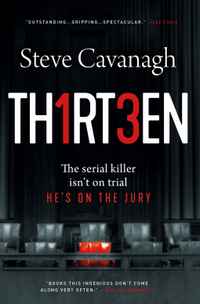 Thirteen
Thirteen
My original post
One of the best serial killer antagonists I can remember reading. A breakneck pace. An intricately plotted novel. An already beloved protagonist. Genuine surprises, shocking twists, and a couple of outstanding reveals make this fourth Eddie Flynn novel a must-read (even if you haven’t read any previous installments).


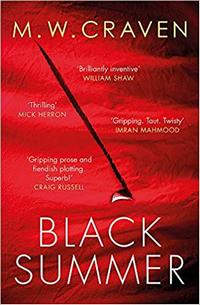 Black Summer
Black Summer
by M. W. Craven
My original post
It’s hard to avoid hyperbole in a Best-Of post like this, it’s harder still when talking about this book. But I just did some math, and Black Summer is in the top 1% of everything I read last year—the writing, the plot, the pacing, the tension, the protagonists, the villain(s), the supporting characters are as close to perfect as you’re going to find. The first note I made about this book was, I’m “glad Craven gave us all of zero pages to get comfy before getting all morbid and creepifying.” It’s pretty relentless from there—right up until the last interview, which might elicit a chuckle or two from a reader enjoying watching a brilliant criminal get outsmarted. It’s dark, it’s twisted, and it’s so much fun to read.


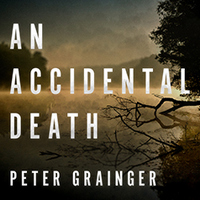 An Accidental Death
An Accidental Death
by Peter Grainger, Gildart Jackson (Narrator)
My original post
Grainger’s DC Smith couldn’t be more different than Craven’s DS Poe if he tried, and these two books feel so different that it seems strange to talk about them at the same time. What’s the same? How easily they get the reader invested in their protagonists. How easily they get you plunged into their world and caring about what they care about. Grainger has a nice, subtle style (with even subtler humor) that made this novel sheer pleasure to read (well, listen to, in this case).


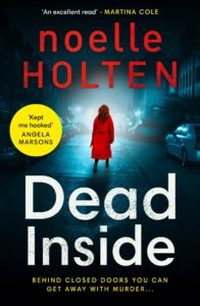 Dead Inside
Dead Inside
My original post
When I was about halfway through this novel, I wrote, “While I’m loving every second of this book, I’m having a hard time shaking the bleak outlook on life and humanity that seems to be part and parcel of this novel…Seriously, read a few pages of this book and see if you’re not willing to replace humanity as the apex predator with something careful and considerate—like rabid pit bulls or crack-smoking hyenas.” This is not an easy read thanks to the characters and circumstances, later I wrote, “This isn’t the cops dealing with a larger-than-life genius serial killer—rather, it’s the everyday reality for too many. Just this time tinged with a spree killer making a grim circumstance worse for some. It’s a gripping read, a clever whodunit, with characters that might be those you meet every day. As an experience, it’s at once satisfying and disturbing—a great combination for a reader. You won’t read much this year that stacks up against Dead Inside and you’ll join me in eagerly awaiting what’s coming next from Holten.” I can’t put it better than that.


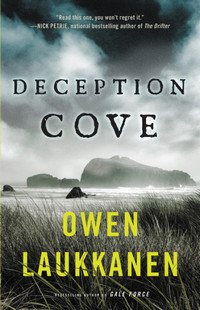 Deception Cove
Deception Cove
My original post
I heard someone describe this as Laukkanen writing fan-fic about his dog Lucy. Which is funny, and pretty much true. From the setup to the execution and all points in between, Deception Cove delivers the goods. Anyone who read just one of his Stevens and Windermere books knows that Laukkanen can write a compelling thriller with great characters. In these pages, he shows that in spades—you take a couple of characters that could easily be cardboard cutouts and instead makes them three-dimensional people with depth, flaws, and a relatability—and throw them into a great thriller. What more could anyone want? A wonderful dog. Guess what? He’s got one of those, too. Leaving the reader wanting little more than a sequel.


 Hacked
Hacked
My original post
Duncan MacMaster is a new (for me) go-to author if I need someone to break me out of a gloomy mood because of books like this. Clever, well-plotted, and filled with more laughs than some “Humor” books I read this year. It also features what’s probably the best secondary character from 2019. Take out the humor (for the sake of argument here, don’t you dare do that really) and this is still a smartly-plotted and well-executed mystery novel. Adding in the humor makes this a must-read.


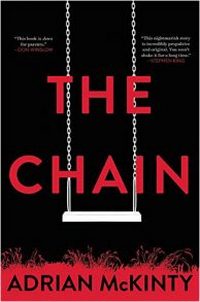 The Chain
The Chain
My original post
There was enough hype around this that I can see where some of my blogger acquaintances were let down with the reality. But McKinty’s breakout novel absolutely worked for me. The tension is dialed up to 11, the pacing is relentless, the stakes are high enough that the reader should make sure their blood pressure prescriptions are filled. The Chain is as compelling and engrossing as you could want. It’s a near-perfect thriller that doesn’t let up. Winslow calls it “Jaws for parents.” He’s right—I can’t imagine there’s not a parent alive who can read this without worrying about their kids, and reconsidering how closely to track their movements and activities.


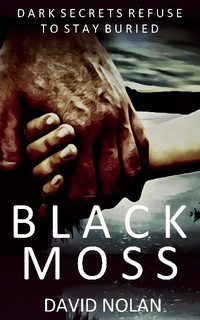 Black Moss
Black Moss
by David Nolan
My original post
This is one of those books that the adjective “atmospheric” was invented for. There’s an atmosphere, a mood, an undercurrent running through this book. Hopelessness surrounds the so many of these characters. Wretched also works to describe the feeling. You really don’t notice the time you spend in this book, it swallows your attention whole and you keep reading, practically impervious to distractions. Yes, you feel the harsh and desolate atmosphere, but not in a way that puts you off the book. The mystery part of this book is just what you want—it’s complex, it’ll keep you guessing and there are enough red herrings to trip up most readers. As far as the final reveal goes, it’s fantastic—I didn’t see the whole thing until just a couple of pages before Nolan gave it to us. But afterward you’re only left with the feeling of, “well, of course—what else could it have been?” And then you read the motivation behind the killing—and I don’t remember reading anything that left me as frozen as this did in years. There’s evil and then there’s this. This is a stark, desolate book (in mood, not quality) that easily could’ve been borrowed (or stolen) straight from the news. Nolan’s first novel delivers everything it promises and more.


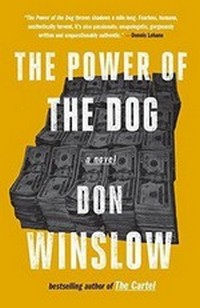
 The Power of the Dog / The Cartel
The Power of the Dog / The Cartel
by Don Winslow
My original post about The Power of the Dog, The Cartel should be up soon.
There’s simply no way I can talk about one of these without the other, so I won’t. This is a fantastic story about a DEA Agent’s obsessive drive to take down one of the most powerful, deadly and successful Mexican Drug Cartels around, as well as a devastating indictment of the U.S.’s War on Drugs. Despite the scope and intricacy of the plot, these are not difficult reads. Despite the horrors depicted, they’re not overwhelming. In fact, there are moments of happiness and some pretty clever lines. Which is not to say there’s a light-hand, or that he ever treats this as anything but life-and-death seriousness. They’re not easy, breezy reads— but they’re very approachable. I don’t know if there’s a moment that reads as fiction, either—if this was revealed to be non-fiction, I would believe it without difficulty. I will not say that he transcends his genre to be “Literature,” or that he elevates his work or anything—but I can say that Winslow demonstrates the inanity of pushing Crime Fiction into some shadowy corner as not worthy of the attention of “serious” readers.

Books that almost made the list (links to my original posts): Flight of the Fox by Gray Basnight, Who Killed the Fonz? by James Boice, Killer Thriller by Lee Goldberg, Going Dark/Going Rogue by Niel Lancaster (can’t pick between the two), You Die Next by Stephanie Marland, The Killing State by Judith O’Reilly, Dead is Beautiful by Jo Perry, Standing in Another Man’s Grave by Ian Rankin, Paper Son by S. J. Rozan, and How To Kill Friends And Implicate People by Jay Stringer.
![]()




